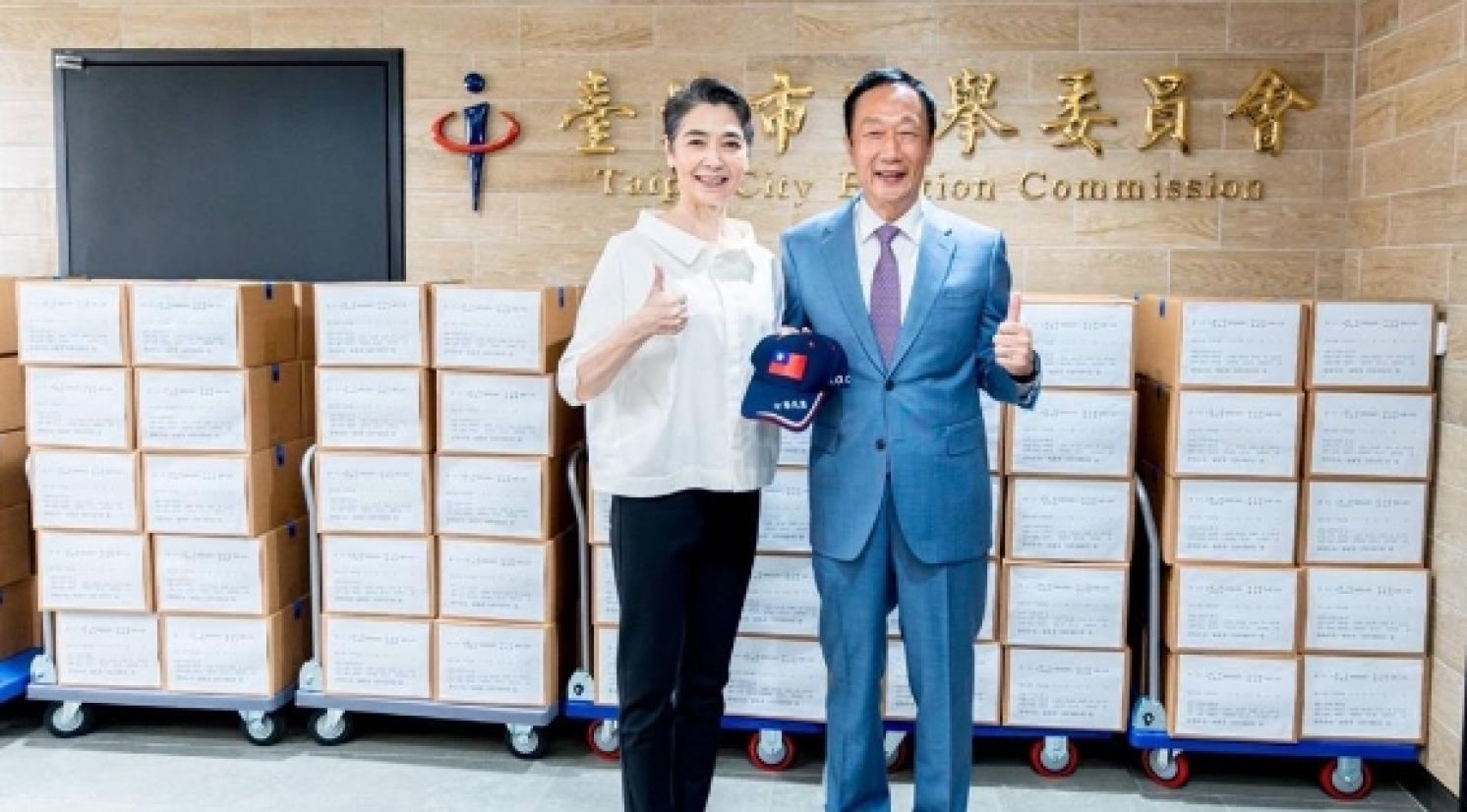
This Week in Taiwan 1029-1104
October 30: The Taiwan People's Party (TPP) intends to include Xu Chunying, a mainland Chinese spouse, in its legislative election party list, triggering attacks from the ruling Democratic Progressive Party (DPP). DPP presidential candidate William Lai criticized Hsu's potential entry into the Legislative Yuan, fearing a national security crisis. Premier Chen Chien-jen also responded that personnel should be considered with national security as the highest standard. Chairman Ko Wen-je of the TPP questioned why cannot people with Republic of China (Taiwan) national identity cards run for political office.
October 30: The Kuomintang (KMT) and TPP held a party consultative meeting and reached for consensuses. First, avoid democratic dictatorship where "one party takes all." Second, on cross-strait relations, restore peace and stability in the Taiwan Strait based on the R.O.C. Constitution and Act Governing Cross-Strait Relations. Third, under the current Constitution, the president should report on the national state of affairs to the Legislative Yuan; the premier should be confirmed by the support of a majority of the Legislative Yuan; and important ministers and cabinet-level officials should appear before the Legislative Yuan. Fourth, work together to maximize the number of legislative seats in the 2024 election.
October 31: During an interpellation at the Legislative Yuan, Premier Chen referred to nuclear power as "green energy," triggering speculation about whether policies to abolish nuclear power were being relaxed. However, Minister of Economic Affairs Wang Mei-hua stated the next day that nuclear power is not considered green energy, and Premier Chen was referring to "green financing." Spokesman Lin Tzu-lun of the Executive Yuan also reiterated that the official position to promote a "nuclear-free homeland" will not change. Former President Ma Ying-jeou questioned how a cabinet-level official could deny a statement by the premier, calling the administration's energy policy chaotic and outdated.
November 1: Former Chinese Premier Li Keqiang's sudden death has led to speculation that the risk of the mainland invading Taiwan may increase. Secretary-General Wellington Koo of the National Security Council stated in the Legislative Yuan that Communist China is currently prioritizing stability and focusing on domestic affairs. According to Koo, Beijing has no intention to seize Taiwan by military force in the short term.
November 1: The Executive Yuan passed the "Chip-Driven Taiwan Industrial Innovation Plan," which will invest NT$300 billion in the next decade (about US$9.3 billion). Through strategic arrangements across four major industries, the plan hopes to combine generative artificial intelligence (AI) and chips to drive innovative breakthroughs in the industry. The plan will promote advanced manufacturing processes in the industry with subsidies and programs to strengthen talent cultivation.
November 2: Terry Gou, founder of Hon Hai Precision Industry Company (Foxconn), has been obtaining signatures to become an official presidential candidate. His campaign submitted a total of 1.03 million signatures, far exceeding the legally mandated threshold of 290,000. However, there have been continued controversies over various signatures. The prosecution investigated 18 cases of suspected unlawful activity, such as exchanging money and goods for signatures or personal information. Among the detained is Fan Cheng-lien, a Central Standing Committee member of the KMT. The KMT has taken harsh disciplinary measures to penalize two Central Standing Committee members who helped Gou obtain signatures.
November 3: Minister of Transportation and Communications Wang Kuo-tsai stated that starting from March 1 next year, assembling group tours to mainland China and receiving mainland Chinese tour groups in Taiwan will be permitted, and the tourism industry can prepare in advance. The ban on travel agencies assembling tour groups to the mainland has lasted for more than three years. Since more than 90 percent of travel agencies in Taiwan operate in the mainland Chinese market, the ban has caused serious challenges.
November 3: With negotiations to formalize a KMT-TPP alliance reaching a stalemate, the KMT touted two new plans. The "Japanese model" proposes voting by KMT and TPP legislator candidates, in addition to a public opinion poll. The "German model" considers party support in addition to a public opinion poll. TPP presidential candidate Ko Wen-je responded by insisting on a nationwide poll and stated that he is willing to be the vice presidential candidate if he does not lead the polls by more than 3 percent.
According to the Ko campaign, Ko will take a photo with his running mate next week. It will continue to make necessary preparations for it is impossible to keep waiting for the KMT's answer.